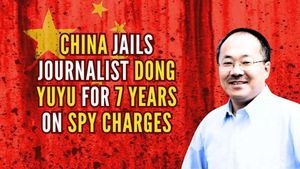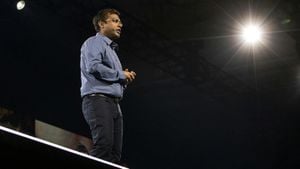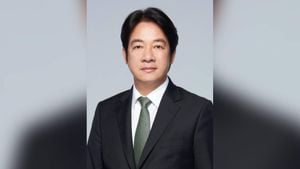Ukrainian President Volodymyr Zelenskyy is expressing readiness to change his longstanding position on territorial concessions for the sake of NATO protection, marking a significant shift in strategy as the war continues to evolve. This new stance emerged from his recent interviews, where he stated, “If we want to stop the hot stage of the war, we should take under [the] NATO umbrella the territory of Ukraine we have under our control.” This implies he is willing to negotiate territories seized since the onset of the Russian invasion to gain necessary security guarantees from NATO, news outlets reported.
The backdrop for this shift is the intensifying military situation. Ukraine's military has increasingly relied on Western weaponry to counter Russian advances, with the U.S. recently approving the use of long-range missiles. Zelenskyy emphasized just how pivotal the support from NATO countries remains for Ukraine's operational capability. He indicated, often partners look for permission from the U.S. before proceeding with military support, highlighting how deeply intertwined NATO's actions are with U.S. foreign policy.
At the same time, German Chancellor Olaf Scholz reaffirmed Germany's military backing for Ukraine, committed to tackling Russian aggression. Post-conversation with Zelenskyy, Scholz remarked, “We will continue our military support for Ukraine in close coordination with our European and international partners.” This statement dovetails with the current sentiment among Western leaders to maintain pressure on the Kremlin, ensuring Ukraine has the resources necessary to defend its sovereignty.
The discussions around red lines—those not meant to be crossed by military support for Ukraine—seem to be heightening. The Kremlin has been regularly vocal about any NATO expansion being provocative, and previous communications from Russian officials have likened NATO's military support to crossing significant boundaries. Dmitry Medvedev, former Russian president, just recently reiterated this as NATO conversations become more serious, warning of grave consequences for military assistance provided to Ukraine.
Given this environment, analysts express concern about the Kremlin’s aim to solidify control over occupied territories. By threatening potential nuclear responses, Russian President Vladimir Putin continues to manipulate fears to maintain leverage over international reactions. “This time, it’s serious! Or at least, that's what the Kremlin wants you to believe,” said experts commenting on the rhetoric surrounding Russia’s military posture.
Notably, though, Zelenskyy's strategy pivot draws attention to his long-standing narrative of retaining all territories seized by Russia since the outset of the conflict. Historically remaining steadfast, he indicated Ukraine would fight until reaching borders recognized internationally, including Crimea, which Russia annexed back in 2014. Amidst fluctuates, speculation arises about the Ukrainian public sentiment, with recent polls hinting many desire rapid negotiations to end the war, contrasting his previously unyielding stance.
Experts note, the broader geopolitical environment also plays a role. The conversation surrounding Ukraine’s future strategy and potential NATO alignment centers not just on military logistics but also on complex diplomatic maneuvering. The narrative swirling about Ukraine’s willingness to concede land indicates the tangible pressures facing the country amid the drawn-out conflict.
European nations remain cautiously optimistic, with many leaders echoing feelings of solidarity with Ukraine's plight. The words of U.S. and European officials indicate overwhelming support for Ukraine as they grapple with how to navigate the uncertainty of these discussions around ceding territory. Yet, leaders also caution about the necessity of maintaining united pressure for the survival and integrity of Ukraine.
What remains clear is the war's impact on regional stability, with Crimea presenting as contentious ground. Zelenskyy's shifting dialogue, related to possible territorial adjustments, could either pacify the Kremlin or backfire and intensify hostilities. ”We need [NATO protection] very much, otherwise [Putin] will come back,” he emphasized, pointing to the grim realities faced by Ukrainians.
The situation grows increasingly sensitive as policymakers deliberate over potential paths forward, balancing urgency, sovereignty, and the firm capabilities supplied by allies. Meanwhile, Russia's reaction to these shifts will test the limits of Western resolve and geopolitical strategies as the fifth winter of this grueling conflict approaches.



